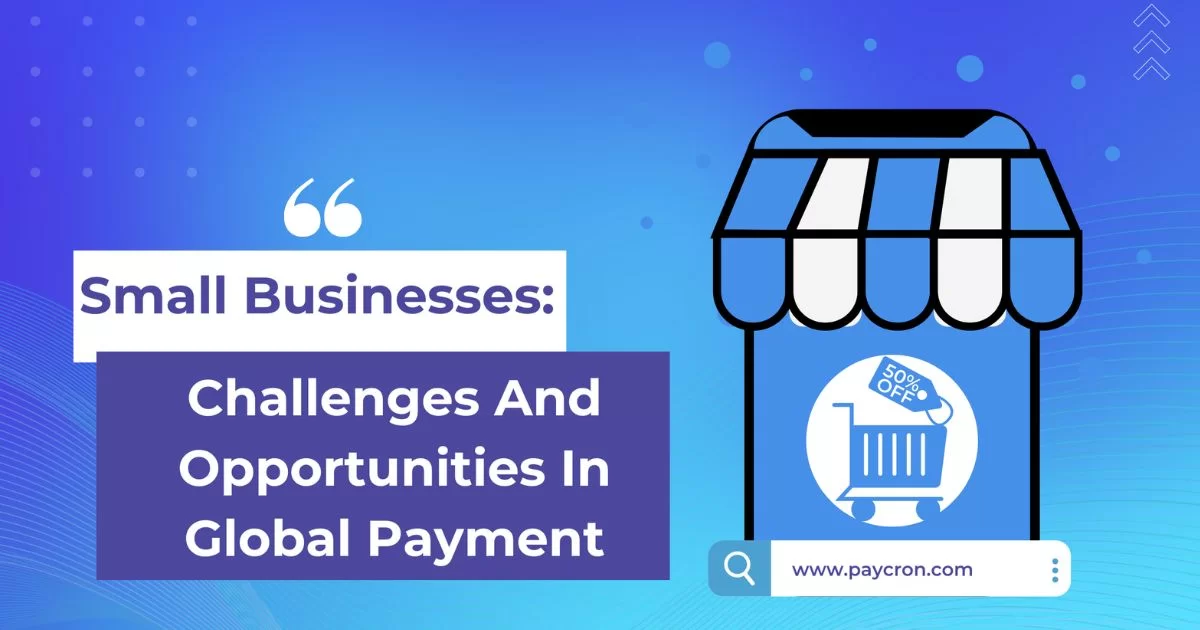
| February 1st, 2023 |
The Challenges and Opportunities for Small Businesses in the Global Payments Industry!
In today’s increasingly interconnected world, small businesses face both significant challenges and exciting opportunities in the global payments industry. Navigating the complexities of international transactions, varying regulations, and fluctuating currencies can be daunting, but advancements in payment technology also offer these businesses unprecedented access to new markets and customers. Understanding how to leverage these opportunities while addressing potential hurdles is key to thriving in this competitive landscape.
Small businesses face a number of challenges in the payment industry, many of which stem from the rapid pace of technological change and increased competition. One major challenge for small businesses is the high cost of accepting electronic payments. Merchant service providers often charge small businesses higher fees than larger businesses, and these costs can add up quickly, eating into small businesses’ already slim profit margins. In addition, small businesses may have to purchase expensive equipment and software to accept electronic payments, such as point-of-sale terminals and payment gateway software.
Another challenge is the need to keep up with the latest technologies and security standards. As technology advances, small businesses must constantly update their software and hardware to ensure they are able to accept new forms of payment, such as mobile payments and digital wallets. They also must ensure that their systems are compliant with the latest security standards, such as PCI-DSS, to protect against fraud and data breaches.
Small businesses also face competition from larger businesses and online retailers, who are able to offer customers more convenient and seamless payment experiences. This can make it difficult for small businesses to attract and retain customers.
Finally, small businesses may have limited resources to devote to payment-related issues and may lack the expertise and technical know-how to navigate the complex and constantly changing payment industry.
Small businesses face many challenges in the payment industry, including high costs, the need to keep up with technology and security standards, competition, and limited resources. However, by being aware of these challenges and taking proactive steps to address them, small businesses can ensure they are able to accept payments in a way that is secure, efficient, and cost-effective.
While it is evident that there are challenges for small businesses, there are also opportunities available. The payment industry offers a number of opportunities for small businesses to grow and thrive. Here are a few of the key opportunities:
- Mobile payments: The rise of mobile payments has created new opportunities for small businesses to reach customers and increase sales. By accepting mobile payments, small businesses can make it easy for customers to pay with their smartphones, leading to increased foot traffic and sales.
- E-commerce: Small businesses can take advantage of the growing trend towards online shopping by offering e-commerce options to their customers. This can include setting up an online store or integrating a payment gateway into their existing website. By doing so, small businesses can reach a wider customer base and increase their sales.
- Subscription-based payments: Small businesses can also explore subscription-based payment models, such as recurring payments or memberships. This can provide a steady stream of revenue, while also providing a better customer experience by simplifying the payment process.
- Innovation: Small businesses can take advantage of the constant innovation in the payment industry to offer customers new and unique payment options. For example, they can explore the use of virtual and digital currency or blockchain technology for secure and transparent transactions.
- Alternative financing: Small businesses can also explore alternative financing options, such as merchant cash advances or invoice financing to access working capital and grow their business.
The payment industry presents many opportunities for small businesses to grow and thrive. By taking advantage of trends such as mobile payments, e-commerce, subscription-based payments, innovation, and alternative financing options, small businesses can increase their sales and reach a wider customer base.